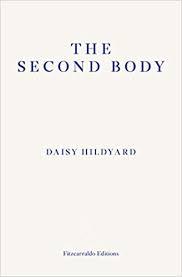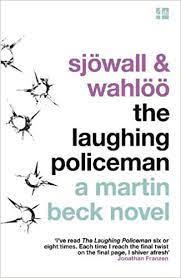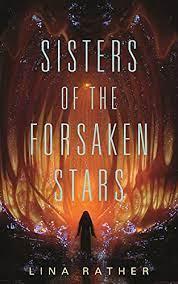Slightly late with this update as I’ve been a bit under the weather (though not with Covid according to my tests!). However, while April hasn’t been all it might have been March was pretty good. Mostly it was a return to authors who’re now old favourites, but there were some new discoveries too.
Ferdinand, the Man with the Kind Heart, Irmgard Keun (translated by Michael Hofmann)
I started with what was sadly my last unread Irmgard Keun. Unusually for Keun this features a male protagonist, Ferdinand, a chancer in a world of chancers. Here we’re in post-war Germany, where everyone’s broke, everyone’s hustling and anyone who was provably a Nazi is doing their best to downplay the fact.
Ferdinand is a sympathetic character, but then this is a sympathetic book. Keun as ever cares about the struggles of ordinary people. She’s a tremendously humane writer, blackly funny but with a sense that she understands what it’s like to be desperate and yet to be hopeful. A tremendous writer and one I’ll revisit.
You can find a bit more about this one at Grant’s, here.

Tell them of Battles, Kings and Elephants, Matthias Enard (translated by Charlotte Mandell)
While I’m linking to Grant, here‘s another he’s reviewed. This is a short novel about Michelangelo, who has traveled to Istanbul to design a bridge. As ever with Enard it’s an exploration of the collision of East and West, or more accurately of the West with the West’s idea of the East. However, unlike his (for me) rather overlong Compass it’s tight and fun and a very enjoyable read.
Here Michelangelo is an undoubted artistic genius, but he’s perhaps less adept at politics, friendship and love. There’s enough incident in its brief 144 pages to fill a miniseries and yet it’s still fizzing with ideas. This is one that might make my end of year list, though competition is already looking fierce…

The Second Body, Daisy Hildyard
This is from Fitzcarraldo’s essays rather than fiction collection. The thesis is essentially that each of us has two bodies – our immediate, physical one and our global one in the sense of the impact we have upon the world. Hildyard explores our relationship with animals before broadening out her thesis to take on wider connections.
I liked the first part of this a lot, where Hildyard works through our ambivalent relationships with the lives around us, but while for me there was consistent interest the theme didn’t quite hold together. That said, the investigation of how we are part of the world, not separate to it as we often imagine, is interesting.

The Laughing Policeman, Sjöwall and Wahlöö (translated by Alan Blair)
My fourth Beck! This one comes with a slightly patronising introduction by Jonathan Franzen which I’d recommend skipping since it rather bizarrely includes a spoiler for later in the series.
Here an unknown killer has machine-gunned a whole busload of people, one of them an off-duty policeman who had no obvious reason to be on the bus in the first place. Cue the usual painstaking police investigation which Sjöwall and Wahlöö are so good at portraying. Nobody makes police work seem like work more than they do. As ever, when Martin Beck and the team reach the end they’ve thoroughly earned it, not by brilliance but by sheer persistence.
At this point I’m committed to the series, but it’s a happy commitment. I plan to start number five shortly.

Sisters of the Forsaken Stars, Lina Rather
I don’t seem to have written up Rather’s first novel, which this is a sequel to. It’s set in a distant spacefaring future in which a convent contained in a living spaceship make their way among the outer colonies who’re in conflict with an overbearing central Earth authority. If you’ve seen Firefly you have the basic concept, but with nuns and a living spaceship which obviously makes it better.
For me this wasn’t quite as strong as the first novel, mostly as the concepts were now familiar, but Rather is good on characterisation and she’s written a great setting. I suspect there’ll be a third in the series and if there is I’ll read it. Fun if you’re an SF fan but not one for those of you who aren’t.

The Hotel, Elizabeth Bowen
One of the fascinating things about middle class holidays in the late nineteenth and early twentieth centuries is how often people seemed to gather in hotels or resorts for lengthy periods, pushed together but with nothing save their class in common. It must have been tremendous for writers.
The eponymous hotel here is in Northern Italy. It’s peopled with English holidaymakers of a certain sort, well-off and leisured but not necessarily best suited to living together harmoniously.
Conflicts here are low key but no less intense for that. Much is unspoken, either between the characters or even by Bowen herself. There’s two implicit lesbian relationships in this book but neither is ever clearly stated and there are many other emotional undercurrents. You have to read between the lines, and slowly too as Bowen’s prose is often a bit opaque, but it definitely repays the effort. This was my first Bowen, but I don’t think it will be my last. Jacqui wrote a typically perceptive review of this one here.

Border, Kapka Kassabova
Finally, a rare trip into nonfiction for me. Kassabova here explores the borders between Bulgaria, Greece and Turkey. She draws on childhood memory, local encounters, myth and (often ugly) history and the result is rich and rewarding.
I had this on Kindle and Audible and mixed reading it with listening to it (I only tend to listen to non-fiction or audiodramas on Audible, with fiction I prefer not to have someone else’s voice determining my reading). It worked well.
Dorian wrote a strong review of this which you can find from here, and Andrew Blackman interestingly wrote a much more critical one here. I’m more with Dorian than Andrew on this one, but Andrew’s arguments do have merit so it’s worth reading both pieces.

And that’s it! Next up April, which I’m still in so you’ll have to wait a little for that.
